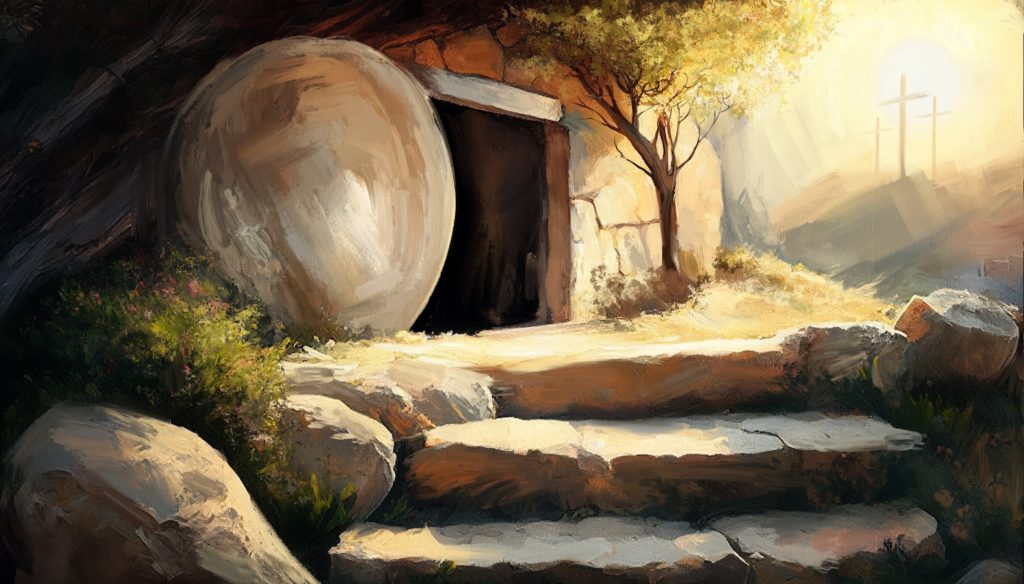I've spent much of my life reading and studying religious and philosophical texts. I’ve perused the works of Plato, Aristotle, Confucius, Cicero, Marcus Aurelius, Anselm, Aquinas, Descartes, Kant, Hegel, etc. I love such texts and the ideas that these great thinkers share. What all of these figures have in common is a certain calm, a measured manner of sharing what they have learned. And consequently, one reads their texts in a sort of abstracted way. I have wonderful memories of reading great books while sitting by the Seine in Paris when I was a doctoral student: thinking, wondering, reflecting.
And then there are the Gospels. They’ve certainly inspired philosophers and spiritual writers, but they’re not philosophical texts. No, they are called “Gospels,” precisely because they are conveying good news. They are not about abstract ideas or timeless spiritual truths that anyone, in principle, could understand. They are about something that happened.
Listen to St. Peter as he speaks in the first reading for the Easter Sunday liturgy: “You know what happened all over Judea, beginning in Galilee after the baptism that John preached.” One could imagine his hearers saying, “Yes, we remember.” Peter goes on: “how God anointed Jesus of Nazareth with the Holy Spirit and power.” It’s about this very particular man Jesus, some things that he did, and finally something that happened to him: “They put him to death by hanging him on a tree. This man God raised on the third day.” There it is. There is what happened. There is the breathtaking event upon which all of Christianity rests.
And then this: “He became visible to us . . . who ate and drank with him after he rose from the dead.” Now, his interlocutors must have thought, “What in the world?” It’s eminently clear that the Apostle is not talking about myths or legends or philosophical abstractions. No, he’s making the jaw-dropping observation that he ate and drank with a dead man who had come back to life.
With all of this startling concreteness in mind, I would like to turn to the Gospel for Easter Sunday, which is taken from St. John’s account. The first thing I would like you to notice is just how much running is going on! Mary Magdalene runs; Peter runs; John runs. In fact, John runs so fast that he outpaces Peter. Let me observe that it’s hard even to imagine Plato, Aristotle, Confucius, or Immanuel Kant running. We run when something urgent has happened, when we’ve got somewhere to go, something to say, someone to tell.
We are told that Mary Magdalene came to the tomb early in the morning while it was still dark. She was heartbroken, probably in tears, and she had come as anyone would come to a tomb: to pray, to meditate, to muse. But then she noticed that the heavy stone was rolled back, and this got her attention. Something unexpected had obviously occurred. Presuming that the body of Jesus had been stolen, she ran with the urgent news to the disciples. Then, upon hearing this, Peter and John—the head of the Apostles and the Apostle whom Jesus specially loved—“both ran.” Something had happened and they had to find out what it was. Then comes that intriguing detail that the younger man outran the older man and got to the tomb first. This line, by the way, helped the great novelist Graham Greene to convert to Catholicism. His novelist’s eye caught that this quirky detail spoke to the historical veracity of the scene.
The two runners, most likely still panting from the effort, bent in to look into the tomb. They noticed the burial cloths that had wrapped the body of Jesus, and something struck them as very odd. First, why would thieves have bothered unwrapping the body? Wouldn’t they have just spirited it away? But second, even if they had stripped them off, would they be lying neatly in place, with the cloth that had covered his head “rolled up in a separate place.” I mean, what thieves would be so meticulous? Was this why when John entered the tomb, we are told that “he saw and believed”? Was this the moment when he realized it wasn’t that someone had broken into the tomb; rather, someone had broken out of it? And because of this, everything changed, all expectations were reversed; everything they believed about life and death had to be reevaluated.
If you look at the account of the Resurrection in the earliest Gospel, that of St. Mark, you find that the women, upon hearing from the angel that the Lord had been raised, “went out and fled from the tomb, for terror and amazement had seized them, and they said nothing to anyone for they were afraid.” Most cemeteries are places of peace; this one gave rise to holy terror. And until we understand why, we haven’t understood Easter. Until we share some of that same fear, we are in danger of domesticating the most revolutionary event in human history.
This is what happened! This is what the Gospel is all about. This is what Christians have been shouting from the rooftops ever since. God’s love is more powerful than death because Jesus found his way out of his grave. Let us all run out to meet everyone we can to share the news!

